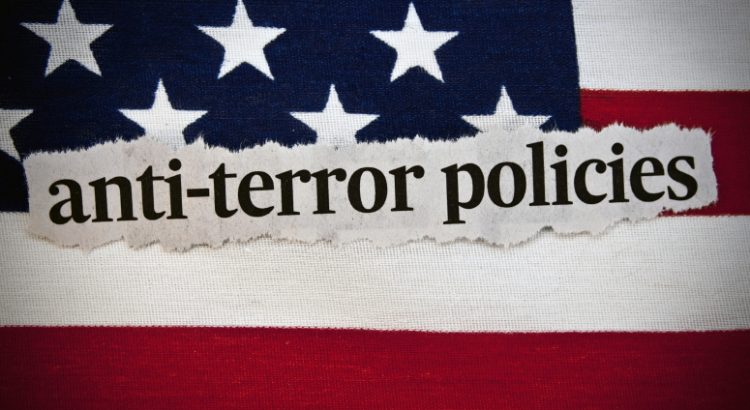“As President Lincoln famously demonstrated, heroic leadership isn’t about surrounding yourself with yes-men and rewarding them with your patronage. It’s about bringing a ‘team of rivals’ into your orbit for the good of the country, and — sometimes — maybe even learning something from them,” writes Dorie Clark, a marketing strategist at the Fuqua School and former presidential campaign spokesperson.
Read More in The HillAuthor: sh136@duke.edu

Where are Coups Most Likely to Occur in 2017?
“Most of the countries at the top of our 2017 forecasts have undergone coup attempts in recent history, or have existing open political conflicts that test their normal institutions. Despite the fact that all coups may appear surprising, there are no surprises in our list of most coup-prone countries for 2017,” writes political scientist Michael Ward and a colleague.
Read More in The Washington Post
Trump’s Travel Bans Needed a Larger Strategy and a Better Rollout
“The new normal apparently is a highly turbulent media environment that includes a fair bit of overreaction. In such an environment, it is even more important that the White House vets carefully its big decisions, makes decisions that support a larger strategy, and rolls decisions out in ways that reassure people that vetting and strategic planning took place. The Trump administration is not there yet,” writes political scientist Peter Feaver.
Read More in Foreign Policy
Want to Know What Trump Will do? Listen to Him, Not His Cabinet
Political scientist Peter Feaver, a former adviser to President George W. Bush, says the lack of consultation about the refugee order may simply reflect a government that isn’t fully staffed. It’s too soon to tell, he says, where the real power centers of national security lie in the Trump administration. “The bigger picture is that they are slowly developing an interagency process and they are slowly staffing it up, and they have a separate executive action process than has been on a faster timetable and has outpaced the interagency process. I would expect, over time, that the interagency process will catch up.”
Read More at NBC News
Trump’s Flawed Defense of His Immigration Order
“Of course, we should not telegraph that we are launching a commando raid on a terrorist target in advance,” says Sanford School professor David Schanzer, director of the Triangle Center on Terrorism and Homeland Security. “However, the chaos, disruption, and injustice caused by the immigration ban that Trump issued demonstrates why unpredictability is usually not a sound basis for national security policy.”
Read More in The Atlantic
Where Will Clean Power Plan Organizers Refocus Their Efforts?
Think tanks and other groups around the country for the past few years have examined how states could comply with the U.S. Environmental Protection Agency’s Clean Power Plan. As the fate of the plan remains uncertain under the Trump administration, those organizers turn their focus to the questions states face as they navigate a still-changing electricity system. Tim Profeta, director the Nicholas Institute for Environmental Policy Solutions, says the institute’s work “on climate policy and clean energy extends beyond a single policy. Ultimately, power sector planning does not occur in four- or even eight-year increments.”
Read More in Climatewire
Research: How Medicare Could Save Millions
Medicare has long struggled with the most efficient way to reimburse hospitals for the care they provide. Professor Ryan McDevitt, an economist at The Fuqua School of Business, studied stays at long-term care hospitals and found on average they discharge patients based on when they get federal payments rather than for medical reasons. His research also shows an alternative payment system could save Medicare millions of dollars without affecting standards of care.
Read More From The Fuqua School
High Corporate Debt Loads Could Crimp Spending
Optimism is up and there are widespread predictions that U.S. companies will crank up investment in 2017, but research from The Fuqua School of Business suggests corporate debt is the elephant in the room that could squash those plans. Also, interest rates have started to increase, and tax reform proposals put forth by President Donald Trump and House leader Paul Ryan could also make using debt less attractive.
Read More From The Fuqua School
Former Affordable Care Act Chief Offers Health Care Prescription

Questions Multiply Over Bannon’s Role
President Trump’s elevation of his chief political strategist Stephen Bannon to a major role in national security policy differs from past presidents. President George W. Bush barred his political strategist from National Security Council meetings; President Obama allowed his strategist to attend. “It’s also true that we Republicans, myself included, sharply criticized them for doing it, precisely on the grounds that you are feeding the image that politics drove the decision,” says Peter Feaver, a political science professor who served on the Bush NSC staff.
Read More in The Washington Post
Obamacare on the Ropes
Is the unraveling of the Affordable Care Act imminent, as many Republicans predict? “The Affordable Care Act is fundamentally stable in most states. Enrollment has been increasing and insurers are projecting better results. Insurers with effective strategies tailored to local demand for high-quality, low-cost health care have been able to show profitability on the exchanges,” says David Anderson, an analyst at Duke’s Margolis Center for Health Policy.
Read More in The Huffington Post
Diplomats: Not My State Department
Five diplomats in the senior management team at the U.S. State Department have stepped down. “This is not normal procedure. It’s not coincidence,” says Bruce Jentleson, a professor of public policy and political science and a former senior adviser at the State Department. “If it wasn’t coordinated, it’s even more significant.”
Read More in VOA

